The question of including Bitcoin in the national reserve is on the agenda for legislators and advisory groups working on promoting cryptocurrencies in the US. However, market traders foresee minimal chances of the reserve being created in the coming months, writes RBC Crypto.
“President Trump asked us to look into this issue, but we are not ready to comment on it yet. This is one of the topics our working groups will consider,” said David Sachs, cryptocurrency advisor to US President Donald Trump, during his appearance on the Fox channel, according to a report by Coindesk.
David Sachs is the co-founder of the venture company Craft Ventures, a former PayPal executive, and an early investor in Uber, Facebook (which is banned in Russia), Airbnb, Reddit, X, and SpaceX. Craft Ventures’ portfolio also includes several crypto projects, such as BitGo, Bitwise, dYdX crypto services, Lightning Labs (developer of the Lightning Network solution), River Financial, Lumina, and several others, according to Cryptorank. Trump appointed Sachs as the “crypto tsar,” a newly created presidential role for issues related to artificial intelligence (AI) and cryptocurrencies. He is also the head of a working group developing the federal regulatory framework for digital assets, according to the January executive order on “strengthening US leadership in digital finance.”
In addition to Sachs’ working group, Republican Senator Cynthia Lummis introduced the Bitcoin Act in 2024, a bill to include Bitcoin in the national reserve.
Under the terms of the bill, the Federal Reserve System (FRS) would be required to buy Bitcoin and hold it as a reserve asset, like gold or foreign currencies. The state is expected to buy up to 200,000 Bitcoins per year for five years with the goal of accumulating 1 million Bitcoins. Lummis’ idea is that this could help reduce the US national debt by half by 2045.
However, for example, FRS Chairman Jerome Powell does not support the plan to add Bitcoin to the national reserve, as he stated at a press conference on December 18. Lawrence Summers, who served as the US Secretary of the Treasury from 1999 to 2001, also called the plan “crazy” in an interview with Bloomberg. Summers also expressed the view that such an approach is a way to appease the sponsors of the crypto campaign.
On the other hand, Donald Trump has said that he intends to create a strategic reserve from the Bitcoins that the US already holds, without purchasing the asset on the open market. Trump has not commented on Lummis’ initiative, although she has already been appointed as the head of the digital assets committee on January 23.
Predictions for the Creation of a Reserve
Despite these efforts, since January 20, the day of US President Donald Trump’s inauguration, traders on the largest cryptocurrency forecasting market, Polymarket, have rated the likelihood of Bitcoin being added to the national reserve in the next 100 days of his presidency as minimal. Within 10 days of Trump taking office, this probability dropped from 48% to 16%, according to the platform’s data from January 30.
Polymarket wagers involve purchasing a token corresponding to the user’s forecast. By buying a “yes” or “no” token, participants create a market-based evaluation of the probability of an event. For example, if the “yes” price is $0.20, the likelihood of the event is estimated at 20%. When the event happens, participants with the correct forecast receive $1 per token, while those with the wrong prediction get nothing. They can also sell tokens before the outcome, allowing them to exit with a profit or loss.
While traders remain optimistic about the prospect of creating a Bitcoin reserve in 2025, the likelihood of this event occurring is rated at 56% on Polymarket.
Among those in favor of this step is Michael Saylor, the founder of the largest corporate Bitcoin holder, MicroStrategy. “The best way to protect the dollar is to pay off the debt and get rich. The second-best way is to make sure that, if some asset is seen as an alternative to government bonds, you already own it,” emphasized Saylor.
MicroStrategy has followed a Bitcoin accumulation strategy since 2020. As of January 26, the company holds 471,007 Bitcoins, acquired for about $30.4 billion at an average price of $64,511 per BTC.
Others believe that even if the US government adopts the Bitcoin reserve strategy, it will not solve many economic problems.
“A Bitcoin reserve is good, but it doesn’t solve the problem. You will still have to carry out budgetary reforms to get us out of the $2 trillion federal deficit each year,” said Avik Roy, president of the Equal Opportunity Research Foundation.


What’s your reaction?
Love0
Sad0
Happy2
Sleepy0
Angry0
Dead0
Wink0







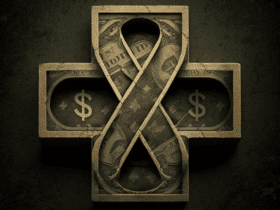



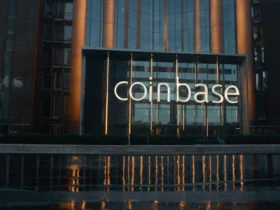
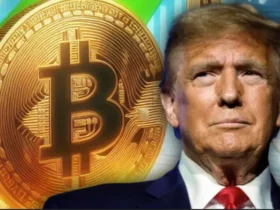
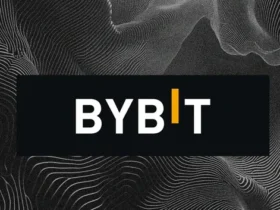



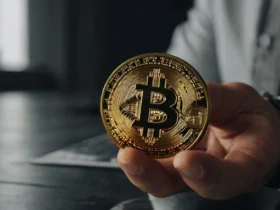
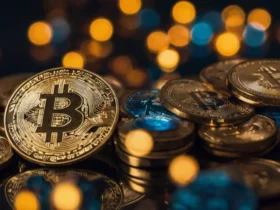




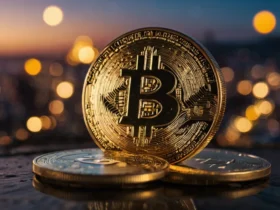
Leave a Reply